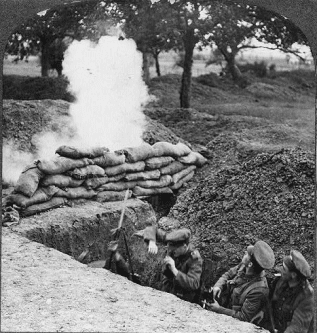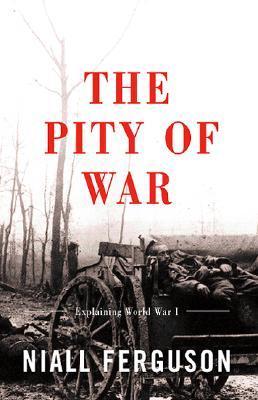

Along with the battles of Mons, Loos, the Somme, Ypres, and Passchendaele, and the writings of Wilfred Owen, Siegfried Sassoon, Robert Graves, and Edmund Blunden, the statistics are probably known to every sixth-former in the United Kingdom: the 60 percent casualty rate that tore apart the British Expeditionary Force (probably the best army Britain ever fielded) in the first three months of the war, the 60,000 casualties on the first day of the Battle of the Somme, the 723,000 British dead by the end of the war (twice as many as in the Second World War). "The Great War," used interchangeably with "the First World War" (so named in 1918 by a sardonic English journalist, who knew it would not be the last such conflict), engendered in Britain a sense of loss that endures to this day it remains the great divide in Britons' sense of their history.


And to answer that question I had to think myself out of the room, back into the past, before the war indeed, and to set before my eyes the model of another luncheon party held in rooms not very far distant from these but different. In 1929 Virginia Woolf described an Oxbridge luncheon party at which, despite notable food and scintillating conversation, she was overcome by a sense of something missing.īut what was lacking, what was different, I asked myself, listening to the talk. But the third evades the difficult and tragic aspects of Britain's experience in the Great War. The first assertion is close to indisputable. "The First World War," he states up front, "remains the worst thing the people of my country have ever had to endure." Although his rich and provocative book argues many-too many-disparate points, its fundamental argument is that (a) the war was a uniquely terrible event for Britain, and therefore (b) Britain should never have fought it, since (c) the stakes involved were for the British not high. The underlying and animating emotion in his book is profound regret. Although Ferguson is young, clever, and ironic, there is nothing cool or dispassionate about his view of the war. In this way, among others, the Oxford historian Niall Ferguson's The Pity of War is a very British book. For them the Great War is not yet merely history. But standing with stricken faces before the Cenotaph at Whitehall and the Ossuaire at Verdun, and tolling bells in the gloomy villages of Lancashire and the Pas-de-Calais, the British and the French, our erstwhile co-belligerents, mourned as if freshly wounded.

Americans scarcely marked the eightieth Armistice Day, this past November 11.


 0 kommentar(er)
0 kommentar(er)
